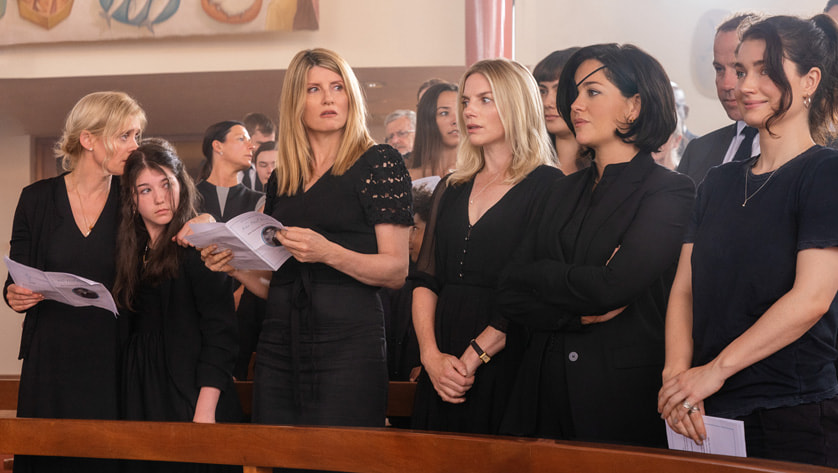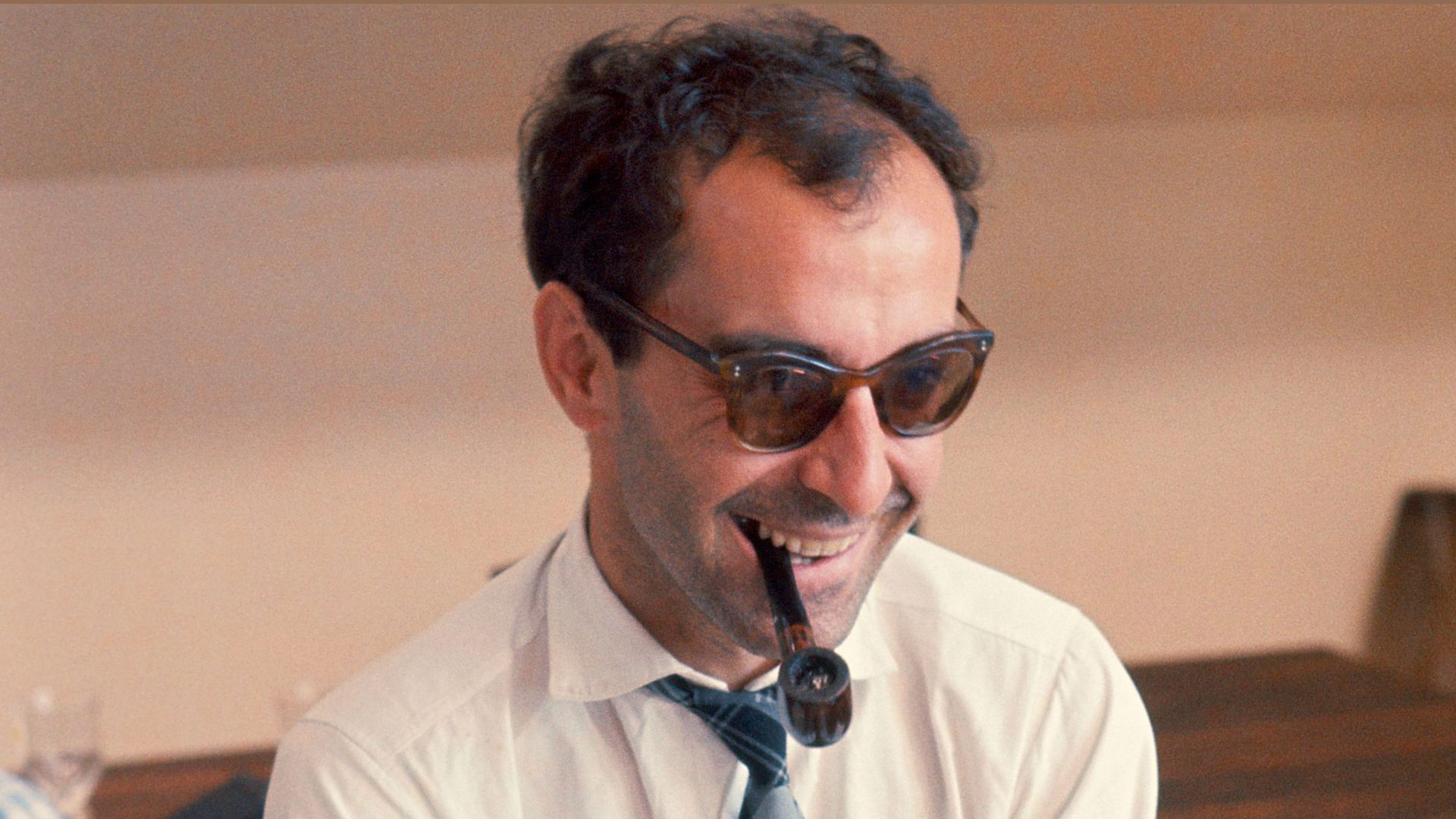By and large, I don’t tend to hate. I wish this characteristic was inspired by the expression that tells us apathy is far worse, for why despise when you can be indifferent? The reality, however, is that I’m too much of a chronic people-pleaser to indulge in the emotion. For Sharon Horgan’s Bad Sisters, however, I made an exception.
Bad Sisters is an Irish adaptation of Malin-Sarah Gozin’s Belgian series The Out-Laws, which aired in 2016 and was hailed for its devilish humour. It was Belgium’s answer to Desperate Housewives but with more murder. This time, Catastrophe’s Horgan brings the series to Dublin, complete with local colloquialisms and idyllic scenery.
It is here that you meet the five Garvey sisters. Horgan’s Eva, who takes on the role of the family matriarch after the death of their parents. Ursula (Eva Birthistle), a nurse and by-the-book mother of three (except for her affair with her photography teacher). There’s fiercely brilliant one-eyed Bibi (Sarah Greene) and the self-deprecating and self-confessed family screw-up Becka (Eve Hewson, daughter of Bono). Finally, there’s Grace (Anne-Marie Duff), a woman constantly and blood-boilingly diminished by her husband, John Paul. Played by Claes Bang (from Stephen Merchant’s The Outlaws, not to be confused with the Belgian original of this show), he is the plot’s rather obvious bastard. It took me 18 minutes to hate him.
In the first instalment alone, we learn he refers to Grace as “mammy” even outside the confines of their marital home, and patronises her beyond belief. He practically smirks at the very idea of Grace offering him a tender kiss as thanks for the pendant he gave her for Christmas, suggesting they instead save it for home. All the while, in the Garvey family home, the sisters watch on. When he successfully sabotages the traditional family swim the next morning, the final nail has landed firmly in the coffin.
Lips loosened by whiskey and exasperation, the girls disclose their fantasies of how they dream of disposing of John Paul and soon plans are set in motion as to how, and if, this could logistically be carried out. With the first six episodes only showing spoiled efforts and all 10 episodes yet to air, we assume that, eventually, one of the sisters’ shifty attempts must work. Families that kill together stay together – or do they?
One by one, we first meet the girls on the day of John Paul’s funeral. In turn, each introduction is an apt synopsis of their character. Grace, still strangely devoted to her late husband, is attempting to conceal the erection he’s sporting in the coffin. Ever practical, Ursula offers her sympathies in the form of medical expertise. “Postmortem priapism,” she explains. “It’s not uncommon. Especially after a violent death.”
These exchanges prepare watchers for a dark comedy with the accent on dark. It could’ve gone wrong easily. Critics might have accused the series of making light of domestic violence, in the same manner, for example, in which comedies about cancer are met with raised eyebrows (the main culprit being Jonathan Levine’s 50/50). But, make no mistake, Bad Sisters does not trivialise this central trope. Horgan offers a masterclass in scripting a serious issue into a comedic genre. Sobering topics need not dwell solely in the drama section.
Plot aside, Bad Sisters is constructed with genius. Scenes alternate between the present day, after John Paul’s death and six months earlier, where he’s a dead man walking. It’s a process that allows watchers to reach the same conclusion as the Garvey sisters in real time while also holding on to an air of mystery as their flashbacks slowly catch up to the rest of the plot.
Filling in these shots to form a more well-rounded script is a plethora of secondary characters. There’s the harmless if slightly clueless neighbour Roger, who appears to be in love with Grace, and the life insurers Tom and Matt, who smell a rat and are determined to find out exactly what happened on the night of John Paul’s death. The girls may be exemplary sisters, but well-trained assassins they are not.
To play devil’s advocate (quite literally), did John Paul need to be quite so cruel? He baits Eva over her infertility, tricks Becka into financial ruin and sadistically blackmails Ursula over her affair. He falsely reports his neighbour for paedophilia, attempts to sabotage Eva’s promotion and callously calls Bibi “Cyclops”. Even more unsettling, his need to control the women of the family seeps into his relationship with their teenage daughter, Bláthnaid, policing her social life and diet and swiping the money she receives for her confirmation before she learns it exists.
He goes above and beyond to earn the title of “The Prick” the sisters bestow upon him. Arguably, if he had any sort of redeeming qualities a more complex script may have emerged, filled with moral debates over the reasoning behind his actions. But this is part of the show’s success. The sisters and watchers are in agreement, The Prick had to go. In that, there is no room for grey areas, only black and white.
Bad Sisters is wondrously good. Perhaps, best of all, is the irony at the heart of it. The girls may engage in morally questionable behaviour but if anything it makes them good sisters rather than bad. In the heart of Horgan’s fictional Dublin, there reside the Garvey girls. An Irish sorority you take on at your own risk.
Evidently, hell hath no fury like a sister scorned.




